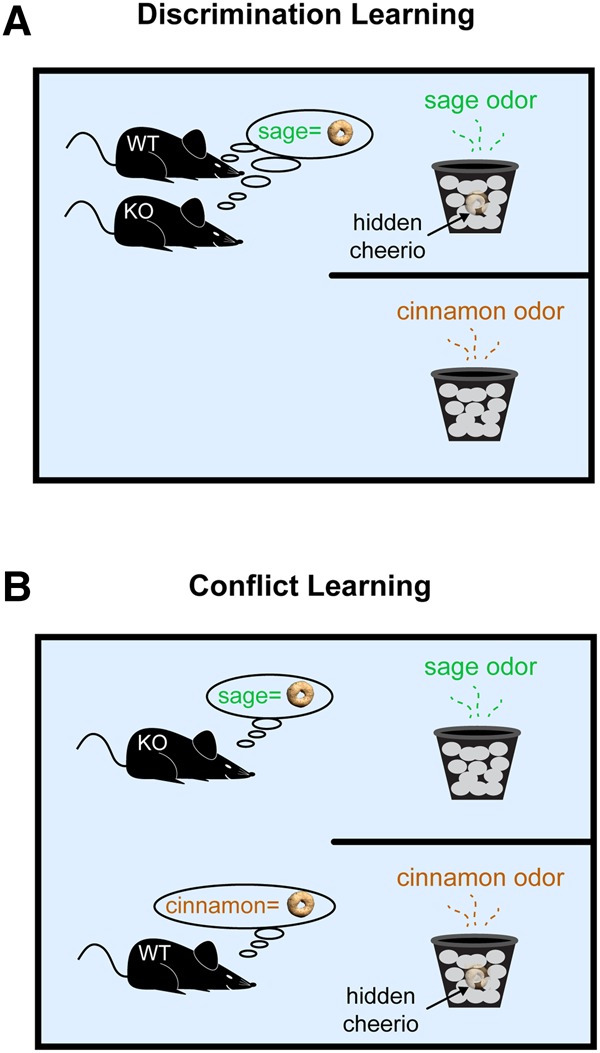Figure 9.

Impaired cognitive flexibility in the absence of regulatory BC1 RNA. An attentional set shifting task (ASST) paradigm was used to ascertain memory and cognition in WT and KO animals. (A) WT and KO animals performed equally well in Compound Discrimination Learning sessions as both were able to acquire and successfully apply an odor-based reward retrieval strategy. The animals had learned that sage odor was associated with a reward whereas cinnamon was not. (B) In Conflict Learning sessions, animals were confronted with a novel situation. The odor–reward coupling was switched as cinnamon rather than sage had now become reward-associated. The novel scenario was thus in conflict with what the animals had learned before. WT animals quickly adjusted with a revised response strategy. In contrast, KO animals continued to apply the previously acquired strategy, i.e., trying to find a reward in the sage-scented bowl. Even after having found, by “chance,” a reward in the cinnamon-scented bowl (and having consumed it), a KO animal would regress back to the old but now inappropriate response strategy, expecting to find a reward in the sage-scented bowl. It thus appears that in the absence of BC1 RNA, animals rely on outdated but dominant outcome expectancies even after having experienced conflicting actual outcomes.
